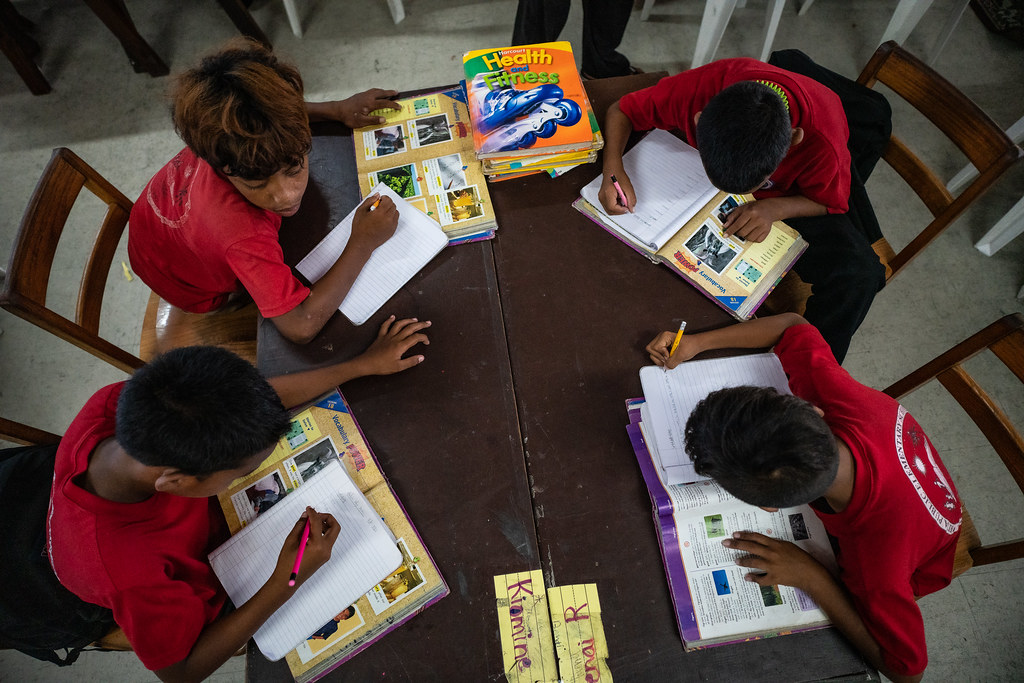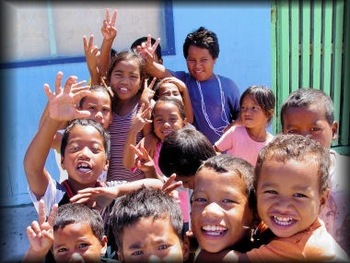The Government of the Republic of Marshall Islands has actually gotten funding from the World Bank for the Education and Skills Strengthening Project (ESSP) cost. It intends to apply part of the profits for consulting services.

The consulting services ("the Services") will help the Project Manager and the RMI National Training Council in carrying out the World Bank-funded project efficiently.
The task will concentrate on supporting the Project Implementation Unit (PIU) in developing a framework for Recognition of Prior Learning (RPL) for TVET, aimed at helping the College of the Marshall Islands and the RMI National Training Council evaluate and boost the skills of workers through accredited college certification.
The detailed Terms of Reference (TOR) for the assignment are shown in the connected Terms of Reference (ToR).
The National Training Council now invites qualified individuals ("Consultants") to show their interest in providing the Services. Interested Consultants should supply details demonstrating that they have the required qualifications and pertinent experience to carry out the Services (connect a Cover Letter of no more than four (4) pages addressing the compulsory experience and credentials requirements curriculum vitae with a description of experience in similar tasks, comparable conditions, etc). Firms' staff may reveal interest through the employing firm for the project. In such a circumstance, just the experience and credentials of people shall be thought about in the choice procedure. The criteria for electing the Consultant are: A.
Mandatory Qualifications and Experience Master's degree in education, training
, management, or an associated field. Minimum of 5-10 years of experience working in TVET System. Curriculum Design and Systems.
Have 2-5 years' experience creating and
carrying out RPL. frameworks, policies, and treatments. A sample of previous work will be required as evidence of previous experience. Exceptional communication, training, and facilitation
skills. Experience with dealing with diverse stakeholders, including government. agencies, TVET institutions, companies, and learners in the Pacific. B. Desired Qualifications and Experience Ability to deal sensitively in a multicultural

environment and build effective group relationships with clients and relevant stakeholders. The attention of interested Consultants (including companies )is drawn to paragraphs 3.14, 3.16 and 3.17 of the World Bank's"
Procurement Regulations for IPF Borrowers "July 2016 revised November 2020" Procurement Regulations ", stating the World Bank's policy on conflict of interest. Additional details can be obtained at the address below during workplace hours, 0900 to 1700 local time. Expressions of interest must be
delivered in a written kind to the address below (personally or by e-mail )by 5:00 pm, 23rd December 2024.
The subject line must state:"National Training Council Strategic Plan Consultant -full name of the prospect". Julius Lucky Director National Training Council!.?.!ntcdr@ntcinfo.org:Phone: 692 625-4521 Empowering Community Champions for Sustainable Development in RMI Gender Equality, Climate Resilience and Water Safety Training Majuro,
Republic of the Marshall Islands: https://www.usp.ac.fj The fourth
Women and Youth Training for
Gender Equality, Climate Change, Disaster Risk Reduction and Water Safety Management has actually just recently occurred at the University of the South Pacific's campus in Majuro, the Republic of the Marshall Islands(RMI ). This vital training was organized by the United Nations Development Programme( UNDP )Pacific Office through the Addressing Climate Vulnerability in the Water Sector(ACWA) task. The week-long capacity-building training aimed to empower women and youth with the understanding and practices required for climate-resilient water safety management in the
Republic of the Marshall Islands(RMI ). This training reinforces a dedication to boosting rmi national training council's water security and neighborhood strength versus climate change effects, especially ladies
and youth, guaranteeing that no one is left. The training welcomed participants from all 24 atolls and featured resource speakers from federal government firms, non-governmental companies, and global development partners from the RMI Environmental Protection Authority, Climate Change Directorate, Office of the Chief Secretary, Ministry of Culture and Internal Affairs, National Disaster Management Office, Women United Together Marshall Islands, RMI Human Trafficking Task Force, Waan Aelõñ in Majel, Jo-Jikum, and the International Organization for Migration. In her opening remarks, Secretary for the Ministry of Culture and Internal Affairs, Brenda Alik, highlighted the significance of cumulative action in developing a climate-resilient country."It is our obligation to come together and interact. As we deal with the difficulties positioned by climate modification, comprehending its effect on our water resources is important for improving the wellness of communities across the Marshall Islands,"she stated.
RMI Environmental Protection Authority General Manager Moriana Philip highlighted in her speech the important role of females and youth in dealing with climate-related obstacles."This workshop joins us from numerous communities to attend to the pressing problems we deal with today, consisting of climate-related challenges, particularly on our water resources."We want to stress the important role of ladies and youth in this job as your involvement contributes to its success and beyond, "she stated.
The first day of the workshop covered vital problems connected to gender equality, human rights, and public health within the Marshall Islands. It consisted of conversations on gender equality and mainstreaming, focusing on the effects of climate change on water security and the out of proportion effects on susceptible groups. The importance of integrating gender equality and social addition into all task aspects was also discussed. Human rights and human trafficking were tackled, worrying the need for comprehensive security of susceptible populations
during emergencies. In addition, the workshop dealt with gender-based violence, highlighting the various types that can develop in catastrophe circumstances, such as domestic violence and sexual browbeating. The agenda concluded with a concentrate on sanitation and hygiene and their vital role in health, incomes, school participation, self-respect, and structure resilient communities. ACWA Project Manager Koji Kumamaru expressed his appreciation to all participants
, highlighting the significance of their contributions to their communities."Women and youth are key to the success of the ACWA project. More importantly, you are the champions and future leaders who will return to your neighborhoods to empower others,"he stated. During the workshop, individuals went to Rongrong Island and analyzed the 15,000-gallon Flatpack Modular water tank set up at the Rongrong High School Boys Dormitory as part of the ACWA task. The installation is an essential element of the job, matched by support from Australia
's Department of Foreign Affairs and Trade. The check out served as an important firsthand experience of the positive impact of the ACWA task on the community and its
water resources. Marie Naisher from Jabat Island revealed her thankfulness for the chance to join the workshop and made clear her desire to be part of the task when it reaches Jabat.
"This was my first time participating in such training, and I found out so much from the guest speakers, group activities, and the website see. I now comprehend the importance of tidy water and how to sanitize it. I'm excited about the ACWA task concerning Jabat and ready to help when it arrives,"she said. Don Kobney, an ACWA site planner from Santo, Kwajalein, likewise shared his excitement."The workshop and website check out boosted my confidence and understanding of the water tank installation.
Seeing the 15,000-gallon flatpack modular water tank firsthand gave me a clear understanding of the system, and I'm anticipating sharing this knowledge with my neighborhood, "he said. By the workshop's end, participants were much better equipped to comprehend climate modification and its regional impacts, drive adaptation and mitigation efforts, particularly in water security, and make use of brand-new resources to impact their neighborhoods favorably. ACWA is made possible thanks to the assistance of the Green Climate
Fund, with the project co-financed by the Government of the Republic of the Marshall Islands

. The Marshall Islands: Skills Training and Vocational Education Project Assesses the performance of the job and highlights lessons. Supplies inputs to 2 more comprehensive examinations- the regional evaluation of ADB support for the Pacific and the unique evaluation study on Millennium Development Goals. The low educational attainment and scarcity of Marshallese skilled workers were mostly due to the low quality of fundamental education, absence of access to education in the external islands, and weak points in skills training and the employment and technical education system.
These supported an economy marked by high unemployment because of constrained private sector growth and federal government downsizing. Unemployment was specifically high among the youth and females in the external islands. Ideal regional knowledgeable workers for existing task vacancies
were unavailable, for this reason the importation of properly experienced foreign workers. Therefore, there was an inequality in between available jobs and skills of the Marshallese labour force. These conditions offered the effort for the Government
of the Marshall Islands to focus on technical and trade education training reforms. In 2000, ADB authorized a loan for $9.1 million to enhance skills training to provide well-trained workers needed for sustained economic and social development. This was to be accomplished through an integrated nationwide abilities training system. The project consisted of 4 components: development of a career awareness program, skills training improvement, boosted abilities training opportunities for ladies and youth, and institutional fortifying. The anticipated outcome was increased income-generating opportunities and employment for students, specifically women and youth in the external islands. In general, the task was ranked unsuccessful. Minimal development was attained in making the task responsive to the requirements of its recipients and private-sector companies. The long-standing weak point of poor numeracy and literacy proficiencies
amongst public primary and secondary school graduates and dropouts entering college or going to voc-tech education could be partly credited to the poor quality of basic education. The project was supply-driven and could not establish a strong linkage with private sector requirements or align its activities with the requirements of the labour market. The status of the technical and professional education training system has actually remained essentially the exact same after job completion. The study put forward that ADB could encourage the Government of the Marshall Islands, through assessment and policy discussion, to follow through on the federal government's
dedication to developing a dedicated labour info system to connect technical and trade education training program offerings with market demand. Although the job set up a labour market details system, in the absence of internal personnel capability at the National Training Council, it was not completely operational.
No Data Found!

